Image of Penguin-style covers for games by James Bit
We’ve debated whether movie adaptations are better than books for too long. It’s time to look farther afield for frivolous controversy. I almost proposed that we rank novel adaptations of video games, but then I got scared. I mean, movie buffs and literary types are vicious enough in their own right, but gamers are a different species entirely. Spend just one afternoon listening to the verbal abuse tossed about by the 12-year-olds on any given multiplayer platform, and suddenly you run out of reasons to ever talk to them, let alone bring up games in public.
Let’s make it a little safer for the comment moderators. Let’s talk about something more hypothetical, just to give everyone that comforting buffer of “what if?”
So here is a list of video games that would have made better novels.
First, let’s set a couple ground rules, because this could get out of hand quickly. To be eligible for this list, a game must NOT have:
- a game novelization, or tie-in novels set in the game universe
- a movie adaptation, or be adapted from a movie
These rules eliminate quite a few great franchises and storylines, but it also keeps us from getting bogged down in discussions about Lego Harry Potter games and Mortal Kombat movies (shudder). In other words, the less precedent, the better. We want wild speculation about things that can never be empirically proven. This is a humanities debate, after all.
Also keep in mind that we’re considering more than game narrative here. We could discuss the merits and flaws of any game story, but this list takes a broader view, covering everything from bad player experience to terrible mechanics to disappointing execution, all in defense of the idea that a novel version would be more interesting and enjoyable than the game. Fear not, though; we’ll still cover a few examples of games that fumbled a potentially awesome narrative.
And now, on to the list of games that would have made better novels.
Duke Nukem Forever
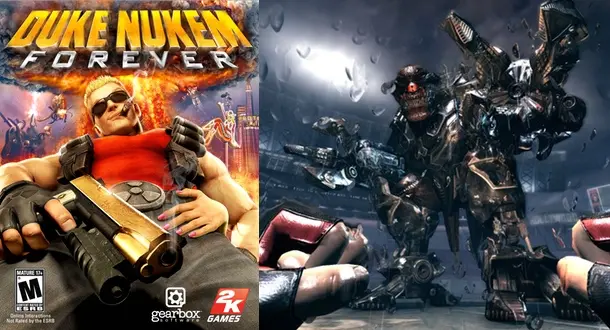
Duke is basically our 21st century Holden Caulfield, here to explain in lurid fashion that everyone and everything is phony. Just look at the way the developers used visual irony to display a sense of … I’m sorry, I just couldn’t keep a straight face any longer. This is definitely not that kind of list.
In short, anything would be better than Duke Nukem Forever. This franchise brought to life in any other medium, including macrame, would have been more enjoyable and enlightening than this disgusting, prurient, unnecessary, unplayable game. I’m not sure even Kurt Vonnegut could rescue something this absurd, but I’d rather see him try than play the game.
Lair
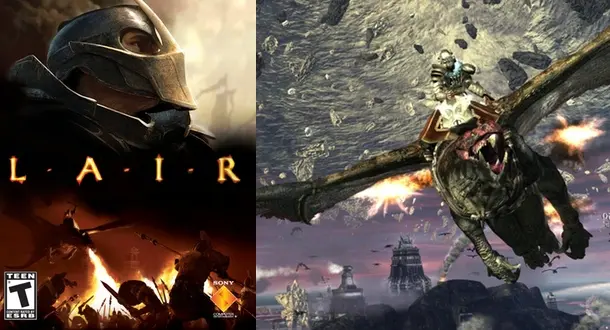
This had all the hallmarks of a great game. The premise is so breathtakingly awesome, and the preliminary visuals were stunning. But Sony hamstrung it with terrible controls and glitchy gameplay. They promised to let you ride a massive dragon into battle, which easily trumps flying a fighter jet for two reasons: 1. flying flamethrowers, and 2. less buttons and switches to worry about. This game should have been tremendous in every way! And yet it’s widely recognized as a failure. In fact, things got bad enough that Sony identified sites that posted negative reviews of the game and then sent them a guide on how to review the game more positively.
It’s pretty obvious how this could have been a better novel. Epic fantasy is a staple in your local bookstore, and you know you wouldn’t whine about Temeraire novels ditching the whole Napoleon alt-history schtick. Especially if it means more guys with awesomely implausible helmets burninating everything on the battlefield from atop their fearsome dragon steeds.
Too Human
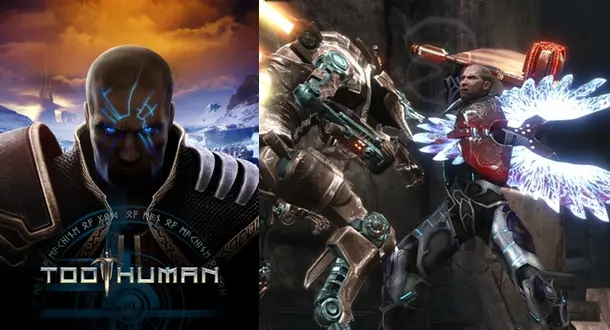
This role-playing game failed for many reasons, not the least of which being that the developer’s CEO essentially stole code to make it. In the end, a court ruled that every copy of the game should be destroyed, ruining any opportunity for a sequel that might resolve the huge cliffhanger at the end. But the reason this game would have made a better novel is because of the missed opportunity with world-building.
Too Human combines science fiction and Norse mythology, two topics that register at least 9.3 on the Hope Scale of Interesting Things to Write About (or HSITWA), which should have resulted in mind-blowing stories and astounding action. But it never did. Forget the game, someone take this universe and start throwing pilcrows and quotation marks into that bad boy.
Call of Duty: Modern Warfare 2
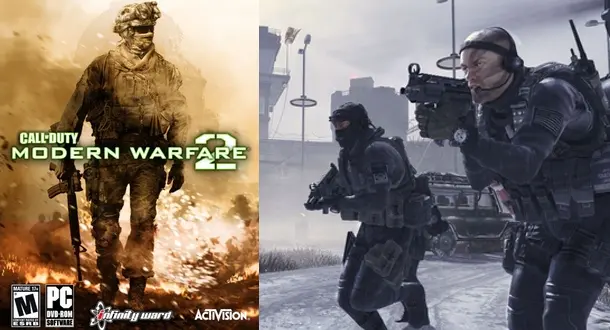
There are two ways of looking at Call of Duty: Modern Warfare 2. From a multiplayer standpoint, CoD:MW2 was an enormous success. From the single-player standpoint, it was underwhelming at best. Oh yeah, there is one more way to look at it: From a financial standpoint, it was a colossal, market-eating, executive bonusing, bank engorging success. So I think you can guess whether CoD fans care about single-player storylines.
The question is why the developer even bothers to make a single-player campaign. Just give the masses what they want (i.e. jingoistic multiplayer battle with period-accurate weapons) and leave out the single-player campaign all together. Then commission a tie-in novel from a recognized name in military thrillers. Heck, Tom Clancy already has his name emblazoned on a few game franchises. He must have a ghost-writer who could write a good CoD novel.
Dark Void
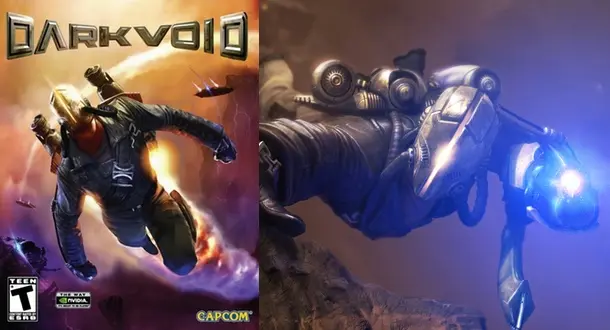
This game is similar to Too Human in that it was a missed opportunity. Dark Void combines Rocketeer-style dieselpunk with an alien invasion in the Bermuda Triangle. If that doesn’t get your little narrative feelers twitching in anticipation, I don’t know what will. While it sure was fun to have a jetpack, the plot was uninspiring, the combat was repetitive, and the controls were too wonky. It would be much more satisfying to let an author play around with those plot elements and let us read the result.
HONORABLE MENTIONS
What’s the point of positing hypothetical situations if don’t go off the rails a little bit? Here are a few honorable mentions; games that wouldn’t necessarily have been better as books, but are still fun to think about.
BIOSHOCK
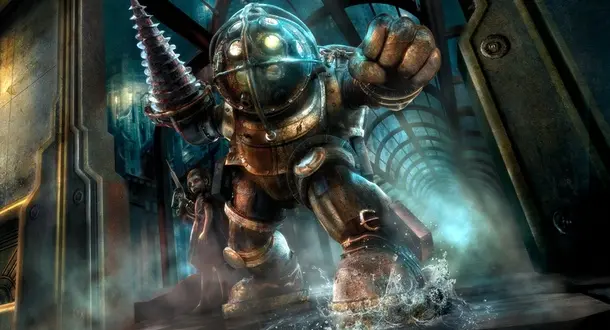
This game breaks my first rule because there’s a tie-in novel. But pipe down, ye naysayers, because this needs to be said. Bioshock is a classic, and we can’t complain that the narrative wasn’t good because it’s widely cited as one of the strongest parts of the game (well, certainly the end, anyway). But that’s just the problem, such a great narrative is undermined by the gameplay.
In other words, a thought-provoking analysis of faux-utopias, power balances, and how they affect the way we treat people is completely overshadowed by the traditional FPS tropes of “gun down anyone and everyone that gets in your way” and “choose x or y” morality. Instead of giving us time to think about and explore the implications, we’re thrown back into the familiar scenario of deciding whether we should shoot someone in the face or find a healing station first. These themes and settings deserve to be fully explored in a book, one that would make Atlas Shrugged look like a kids book (assuming you don’t already think Ayn Rand wrote middle-grade fantasy).
Final Fantasy [pick a number]
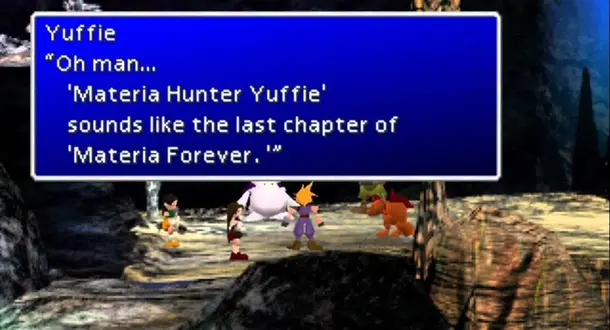
I won't pick a specific game from the franchise because the last thing I want is someone in the comments telling me that Final Fantasy 3 was actually Final Fantasy 27 in Japan, and Final Fantasy 7 was actually Final Fantasy -3.1415 in the Ukraine. Just take any Final Fantasy game before they started using voice actors. With all the dialog text and cutscenes, the developers already wrote a novel’s worth of words for each game. You were reading all that text anyway; might as well have printed that sucker out. And the worlds are strange and fascinating enough to be worth exploring in a book.
Any LucasArts Adventure Game
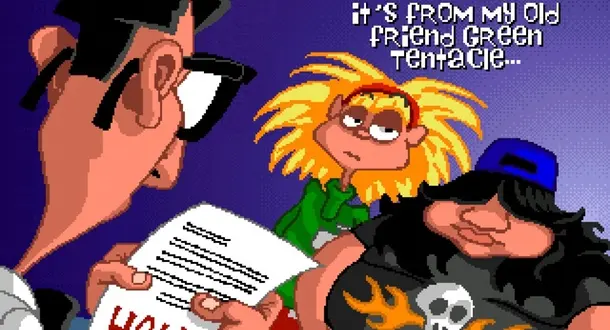
Every last one of these games was perfect, and I will fight anyone who suggests otherwise. But they could have made entertaining books, too. Don’t you ever wonder what would have happened if Douglas Adams had written a Day of the Tentacle novel?
Duck Hunt
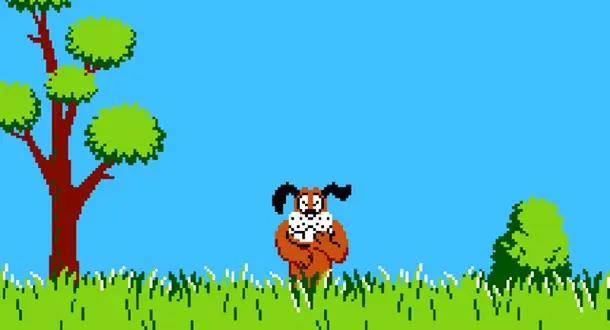
Video games are not the proper medium to explore the sociopathic tendencies of our hunting dog companion. There are layers there that require at least 80,000 words, wherein we explore the dichotomy of the troubled canine who one moment is relishing the dive into the tall grass, searching maw-first for the soft, yielding flesh of a dead duck, holding it aloft with pleasure, and the next moment is equally delighted that the player failed to kill the bird, shaking with mirth, mocking the impotence of your weapon. I’m telling you, he’s crazy.
That’s enough for now. It’s your turn to weigh in. Which game do think would have been better as a book?

About the author
Daniel Hope is a writer, ukelele player, and unrepentant nerd. He has worked as a technology journalist (too frantic), a PR writer (too smarmy), and a marketing writer (too fake). He is currently the Managing Editor of Fiction Vortex, an online publication for science fiction and fantasy short stories. At FV, he's known as the Voice of Reason. That means FV staff members wish he would stop worrying all the time. He thinks they should stop smiling so much.
Daniel Hope lives in California and dreams of writing more. When distraught about his output, he consoles himself with great beaches and gorgeous weather. He recently published his science fiction novel, The Inevitable, on the Kindle Store and Smashwords. Find out more at his site: SpeculativeIntent.com.








